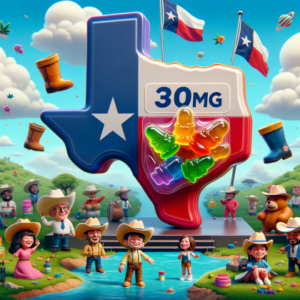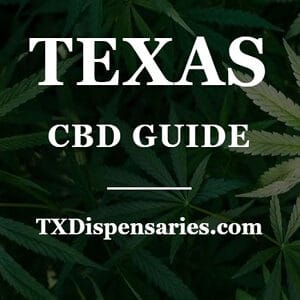

Cannabis and CBD for Muscular Dystrophy Treatment in Texas
- All forms of muscular dystrophy (MD) are qualifying medical conditions for a Texas medical cannabis recommendation.
- MD is a debilitating condition characterized by loss of muscle mass and weakness.
- Medical marijuana and CBD are being used by MD patients to treat pain, muscle stiffness, spasticity, insomnia, anxiety, and depression.
- In order for patients to be able to purchase products containing THC at Texas medical marijuana dispensaries, they must first be examined by a state-certified medical marijuana doctor.
In this post, we’ll discuss how to get Texas medical marijuana for muscular dystrophy. We’ll also spotlight some of the ways that patients are treating muscular dystrophy with medical marijuana in Texas.
Signed into law in 2015, the Texas Compassionate Use Act made it legal for medical marijuana doctors in Texas to prescribe low-THC cannabis products to patients with qualifying medical conditions. Originally, only patients with intractable epilepsy qualified for a Texas medical marijuana card. However, in June of 2019, all forms of muscular dystrophy and several other medical conditions were added to the list of qualifying conditions.
Other conditions added at that time include all seizure disorders, autism, multiple sclerosis (MS), spasticity, amyotrophic lateral sclerosis (ALS), chronic traumatic encephalopathy (CTE), cancer, Alzheimer’s, Parkinson’s, and Huntington’s diseases.
In June 2021, the Texas medical marijuana program was expanded again to include all forms of cancer and post-traumatic stress disorder (PTSD). Also, the THC cap was raised from 0.5 percent to 1 percent beginning September 1, 2021.
What Is Muscular Dystrophy?
Muscular dystrophy (MD) is a condition characterized by loss of muscle mass and weakness. MD is the result of the body losing its ability to produce proteins necessary to build muscle. MD commonly begins in childhood and affects mostly boys. However, other types of MD don’t surface until adulthood.
The use of leg braces and crutches is common among young muscular dystrophy patients. Eventually, most become wheelchair-bound. In the worst cases, patients become unable to perform basic life functions and develop difficulty swallowing and breathing. MD may also cause damage to the spinal cord requiring risky surgery. About two-thirds of MD sufferers also experience pain caused by muscle cramps and stiff joints.
There are several different forms of muscular dystrophy. Eight types of muscular dystrophy include Duchenne/Becker, Myotonic, Limb-Girdle, Facioscapulohumeral, Congenital, Distal, Oculopharyngeal, Emery-Dreifus. Symptoms can include muscle tensing, pain, learning difficulties, heart issues, and respiratory function problems.
Little is known about MD other than that it is a hereditary disease. More than 30 known genes cause different forms of MD. There is currently no cure for muscular dystrophy. Medications such as prednisone and narcotics used to manage symptoms can cause debilitating side effects.
Medical marijuana may offer a safe and effective alternative to the use of steroids and opiates for the treatment of Muscular Dystrohpy patients in Texas.
According to the National Institute of Health, about 20 percent of MD patients have used medical marijuana, and 60 percent of those use it only to treat their condition. The study’s authors concluded, “Our results support the potential role of cannabis and cannabinoids in the treatment of DM1-associated symptoms which will need to be thoroughly investigated.”
How Does Medical Marijuana & CBD Help Treat Muscular Dystrophies?
Compounds produced in the resinous flower clusters of the female cannabis plant called phytocannabinoids offer neuroprotective, anti-inflammatory, antioxidant, and analgesic (pain reducing) properties that can benefit some MD patients.
The anti-inflammatory properties of cannabis make it an effective pain killer for and a substitute for opioids for some patients. Cannabinoids can also act as muscle relaxants helping to relieve joint stiffness, spasticity, and loss of muscle control. Non-intoxicating cannabinoids help some MD patients deal with symptoms such as insomnia, anxiety, and depression.
Cannabis produces a wide variety of phytocannabinoids. THC, or tetrahydrocannabinol, is the cannabinoid responsible for marijuana’s intoxicating effects. Another cannabinoid that is produced in abundance is CBD, or cannabidiol. CBD is non-intoxicating. Other common but lesser-known cannabinoids include CBG, cannabigerol, and CBN, cannabinol which are also non-intoxicating.
Another type of THC — delta-8 THC — is actually produced from CBD. D8 THC has mildly intoxicating effects. Its legality is being questioned, however, until it is sorted out, patients can buy CBD, CBG, CBN, and D8 THC online without a medical marijuana card. Buyers beware, however, because not all CBD or delta-8 products are of high quality.
Phytocannabinoids are a natural choice as a dietary supplement as they are very similar to compounds produced naturally by our own body’s called endocannabinoids. And, as such, phytocannabinoids are non-toxic and well-tolerated.
The human endocannabinoid system (ECS) is responsible for maintaining a wide array of bodily functions including some that are involved in MD. Cannabinoid receptors are found in organs throughout the body including the brain. When the brain detects an imbalance it floods the bloodstream with particular cannabinoids in order to bring back balance.
The human endocannabinoid system (ECS) is responsible for maintaining a wide array of bodily functions including some that are involved in MD. Cannabinoid receptors are found in organs throughout the body including the brain. When the brain detects an imbalance it floods the bloodstream with particular cannabinoids in order to bring back balance.
Some medical marijuana doctors theorize that an endocannabinoid deficiency might be involved in muscular dystrophy and that supplementing with phytocannabinoids can help to mitigate symptoms associated with MD.
How To Use Medical Marijuana To Treat MD In Texas
Only cannabis products (oils, tinctures, lozenges, lotions, and inhalers) containing no more than 1.0 percent THC and at least 10 percent CBD are allowed for sale and use in the state of Texas.
MD patients may find relief from cannabis-infused lozenges, oils, and tinctures. The oils and tinctures can be dropped under the tongue where they are rapidly absorbed into the bloodstream, or they can easily be added to beverages and recipes. While cannabis inhalers offer fast onset of effects, they might not be an option for some patients.
Products produced from hemp containing less than 0.3 percent THC are legal nationwide. Texas can buy CBD online and have it delivered — no medical marijuana card needed. That being said, however, it’s wise for MD sufferers to be under the supervision of a knowledgeable medical marijuana doctor prior to beginning a cannabis protocol.
Research Studies On Muscular Dystrophy And Medical Marijuana
A study published in the British Journal of Pharmacology claimed that both CBD and THC reduced symptoms in mice with Duchenne muscular dystrophy (DMD). Authors of the study noted: “We provide new insights into plant cannabinoid interactions with TRP channels in skeletal muscle, highlighting a potential opportunity for novel co-adjuvant therapies to prevent muscle degeneration in DMD patients.”
Authors of a study report published in Nature Communications wrote: “We propose that the endocannabinoid system participates in the development of degenerative muscle disease, through effects on muscle differentiation, regeneration, and repair processes, and suggest that CB1 receptor may represent a potential target for the adjuvant therapy of muscular dystrophies.”
Another study published in 2019 in the British Journal of Pharmacology claimed that non-euphoric cannabinoids’ like CBD affected dystrophic mice. Researchers found that CBD reduced inflammation slowed loss of mobility.
Medical marijuana isn’t a cure for MD. However, until a cure is found, cannabis offers a natural, safe, and often effective treatment for the symptoms of MD when used under the supervision of a knowledgable medical marijuana doctor.
Getting a Medical Marijuana Prescription For Muscular Dystrophy in Texas
Prior to receiving a medical marijuana card in Texas, patients must be examined by a state-certified medical marijuana physician.
A Texas medical marijuana card allows access to low-THC, high-CBD cannabis oils. Qualifying residents of any age may obtain a card. However, in order for qualifying patients under the age of 18 to receive a Texas medical marijuana card, they must first obtain recommendations from two state-certified medical marijuana physicians.
Texas residents suffering from qualifying conditions other than CTE may also be eligible for a medical marijuana card. Additional qualifying conditions include PTSD, Alzheimer’s disease, Parkinson’s disease, cancer, autism, epilepsy, ALS, MS, and all seizure disorders.
Qualifying patients in the state of Texas may designate a caregiver to procure and administer cannabis products. Qualifying minors may only receive cannabis products from a guardian or parent.
Before receiving their Texas medical marijuana card, physician-certified patients must complete their registration by logging on to the Compassionate Use Registry database.
Texas medical marijuana dispensaries
In the state of Texas, there are only three licensed companies legally allowed to cultivate, manufacture and sell medical marijuana products — Consortium Texas, Surterra Wellness, and Compassionate Cultivation. These three companies operate several Texas dispensaries. Some locations offer online and phone ordering for home delivery to qualifying patients. Call your nearest dispensary for details.

Sign Up for Medical Cannabis in TX
For potential medical marijuana patients we make it easy to connect with a recommending doctor online. You will also receive updates & news relative to medical marijuana in Texas. If you are interested, simply fill out the MMJ patient registration form to get started. Legal Residents Only.

MMJ Patient Registration Form

Sources and additional reading:
- Effects of non-euphoric plant cannabinoids on muscle quality and performance of dystrophic mdx mice
- Genetic and pharmacological regulation of the endocannabinoid CB1 receptor in Duchenne muscular dystrophy
- Effects of non-euphoric plant cannabinoids on muscle quality and performance of dystrophic mdx mice
- Myotonic dystrophy type 1 | Genetic and Rare Diseases Information Center (GARD) – an NCATS Program
- Characterization of cannabis use by patients with myotonic dystrophy type 1: A pilot study






